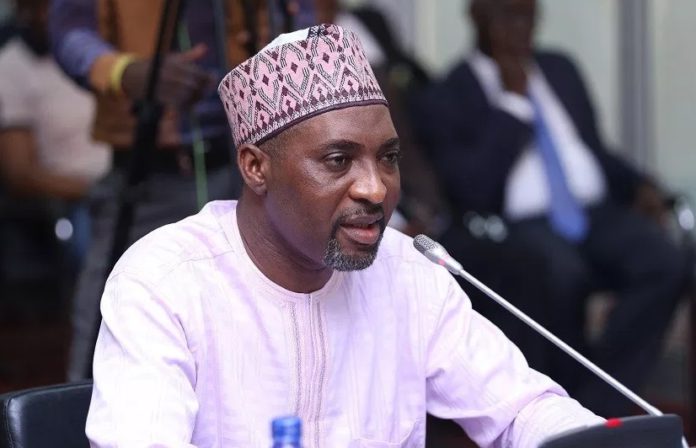Interior Ministry Introduces Strict Screening Protocols After El-Wak Incident

The government has announced a series of major reforms to the security services recruitment process following the tragic stampede at the El-Wak Sports Stadium, which claimed six lives and left several others injured.
Government’s Spokesperson, Felix Kwakye Ofosu, says the Interior Ministry has taken decisive steps to prevent such a disaster from ever occurring again.
He revealed that the Minister for the Interior has confirmed the opening of the application portal for recruitment into the Police Service, Prisons Service, Fire Service and Immigration Service on Monday.
According to him, the Ministry is acting on key lessons from the El-Wak tragedy and is introducing strict measures to ensure a safer and more orderly screening process.
“Minister for the Interior announces that the application portal for recruitment into Police, Prisons, Fire and Immigration Services, opens on Monday. Drawing lessons from the El-Wak tragedy, he has outlined the following measures to ensure a smooth selection process,” Kwakye Ofosu said.
He explained that the new approach will decentralise screening to reduce overcrowding.
“There will be multiple screening Centers in every Region with between 10 to 15 Centers in Accra,” he said, adding that this will prevent the dangerous congestion that contributed to the El-Wak incident.
Kwakye Ofosu further noted that strict capacity limits will be enforced at all screening venues.
“No screening center will accommodate more than 1,000 people at a time, with a target of 500 persons in the morning and another 500 in the afternoon,” he stated.
He stressed that compliance with scheduled reporting times will be mandatory.
“Any applicant who shows up in the morning when he or she has been scheduled for the afternoon will be instantly disqualified,” he cautioned, describing the directive as a necessary step to maintain order and reduce risk.
As part of the reforms, the various agencies under the Interior Ministry will also adjust their timelines to prevent overlap.
“To avoid overcrowding, the screening exercise will be done in turns. The Police Service will complete its screening before another agency starts its screening, ensuring no congestion. The screening process will also be staggered to prevent simultaneous screenings at the same location,” he explained.




